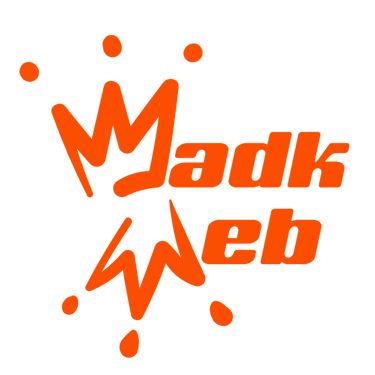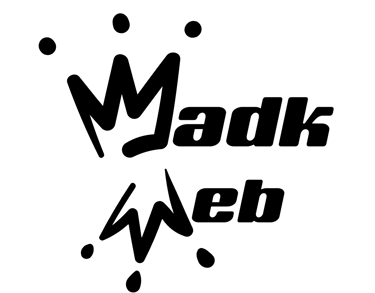Streamline Success: The Power of a Single Webpage Business
In today's digital landscape, establishing an online presence has become an absolute necessity for businesses of all sizes. While the complexity of websites can often discourage small businesses, the solution may lie in a more simplified approach: the OnePage. This article explores the multiple advantages of choosing a single webpage to represent your business on the Internet.
WEB
madkweb
3/25/20245 min read



What is a Single Web Page?
Before exploring the benefits of a single web page, it's important to grasp what it actually means. A single web page, also known as a "onepage," is a website that consists of just one page rather than multiple interconnected pages. All the information, sections, and functionalities are compiled into one seamless page, creating a fluid and intuitive browsing experience for visitors.
Single web pages are often utilized for websites that do not require extensive content or complex functionalities. They are an ideal choice for personal websites, portfolios, product launch sites, or small business sites. By consolidating all information on one page, visitors can easily access everything they need without navigating through different pages.
A key feature of a single web page is its visual design. With all information on one page, it's crucial to create an attractive layout and design that captures visitors' attention. Visual elements like images, videos, and animations can be used to make the page more dynamic and interactive.
Besides visual appeal, a single web page also provides a smooth navigation experience. Visitors can simply scroll through the page to access different sections and information, eliminating the need to click on links or load new pages, making navigation quicker and more convenient.
Another interesting aspect of a single web page is its ability to convey a story or present information in a more linear manner. Instead of dispersing information across multiple pages, a single web page allows for a more cohesive storytelling experience. Visitors can follow a predefined journey and discover information in a specific order, which can be especially useful for websites aiming to tell a story or present a logical progression.
In summary, a single web page offers a smooth and intuitive browsing experience, consolidates all information on one page, and provides an opportunity to tell a story or present information more linearly. It's an ideal option for websites that do not require extensive content or complex functionalities and wish to offer a simple and effective user experience.
Simplicity and Ease of Navigation
One of the main advantages of a single web page is its simplicity. Unlike traditional websites that can be complex and difficult to navigate, a onepage offers a simplified user experience. Visitors can scroll through all necessary information on a single page without clicking on links or getting lost in complicated menus. This streamlined navigation can encourage visitors to spend more time on your site.
Moreover, a onepage allows for highlighting essential information in a clear and concise manner. Instead of having multiple pages with scattered content, everything is organized on one page, making it easier for visitors to understand and remember the information.
Additionally, the simplicity of navigation on a onepage also helps reduce the site's loading time. Visitors don't have to wait for multiple pages to load, which can be frustrating and lead to a loss of interest. With only one page to load, loading time is significantly reduced, enhancing the user experience and potentially contributing to better search engine optimization.
Faster Loading Time
Single web pages also benefit from faster loading times compared to traditional websites. With only one page to load, visitors don't have to wait for multiple different pages to load. This is particularly advantageous for users accessing your site from mobile devices or with a slow internet connection. A faster loading time can improve user experience and reduce bounce rate, essential for keeping visitors engaged and interested in your business.
Imagine a user trying to access your website on their mobile phone while on the move. With a traditional website, they would need to wait for each page to load individually, which can be time-consuming and frustrating. However, with a single web page, all the information they need is available on one page, meaning they can quickly find what they're looking for without waiting for multiple pages to load.
This quicker loading time is also beneficial for users with slow internet connections. In many regions, connection speeds can be limited, making loading multiple web pages quite slow. However, with a single web page, visitors can quickly access your content, even with a slow connection, enhancing their user experience.
Moreover, a faster loading time can positively impact your website's SEO. Search engines like Google place significant importance on a website's loading speed when determining its ranking in search results. By having a single web page with a quick loading time, you increase your chances of achieving a better ranking in search results, leading to more organic traffic to your site.
Attractive and Impactful Design
Another reason many businesses choose a single web page is the opportunity to create an attractive and impactful design. Since all the information is compiled on one page, more time and effort can be devoted to the site's visual design. Elements such as images, videos, and animations can be integrated more creatively and effectively, attracting visitors' attention and encouraging them to learn more about your business.
With only one page to showcase your business, you can truly focus on creating an immersive visual experience for your visitors. High-quality images that reflect your brand identity and capture users' attention upon arriving at your site can be used. Videos can also be strategically integrated to dynamically tell your business story or showcase your products and services. Additionally, with a single web page, you have the opportunity to use animations to make your site even more attractive. Animations can add interesting visual effects, such as smooth transitions between your page's sections or elements that move or reveal as the user scrolls through the page. These well-designed animations can not only make your site more enjoyable to view but also strengthen your message's impact and captivate visitors' attention.
In summary, a single web page offers numerous possibilities to create an attractive and impactful design. By dedicating more time and effort to your site's visual design, you can use images, videos, and animations creatively to attract visitors' attention and encourage them to learn more about your business.
Search Engine Optimization
A onepage also offers advantages in terms of search engine optimization (SEO). Since there's only one page to optimize, you can focus all your efforts on optimizing keywords, meta tags, and your page's content. This can improve your ranking in search results and make your site more visible to users searching for similar products or services. However, it's important to note that optimizing for search engines requires a well-thought-out strategy and thorough research of relevant keywords.
One of the first steps to optimize your onepage is to conduct thorough research on relevant keywords for your business or industry. Keywords are terms users enter into search engines when looking for specific information or products. By identifying the most relevant keywords for your business, you can strategically incorporate them into your onepage's content.
Once you've identified relevant keywords, you can incorporate them into your onepage's meta tags. Meta tags are HTML code elements that provide search engines with information about your page's content. They typically include a title tag, a description tag, and keyword tags. By optimizing these meta tags with your targeted keywords, you help search engines understand the subject of your onepage and display it in relevant search results.
Besides optimizing keywords and meta tags, the content of your onepage also plays a crucial role in its search engine ranking. Search engines give great importance to quality and relevant content. Therefore, ensure your onepage's content is well-written, informative, and meets user needs. Incorporate your keywords naturally within the content and ensure it's easy to read and understand.
In addition to these specific search engine optimization elements, it's also important to consider other factors that can influence your onepage's ranking. For example, your page's loading speed, mobile
CONTACT US?
info@madkweb.com
+32498/97.54.68.
N°ent.: 0794.751.484
Location
Dirty South of Belgium
©


